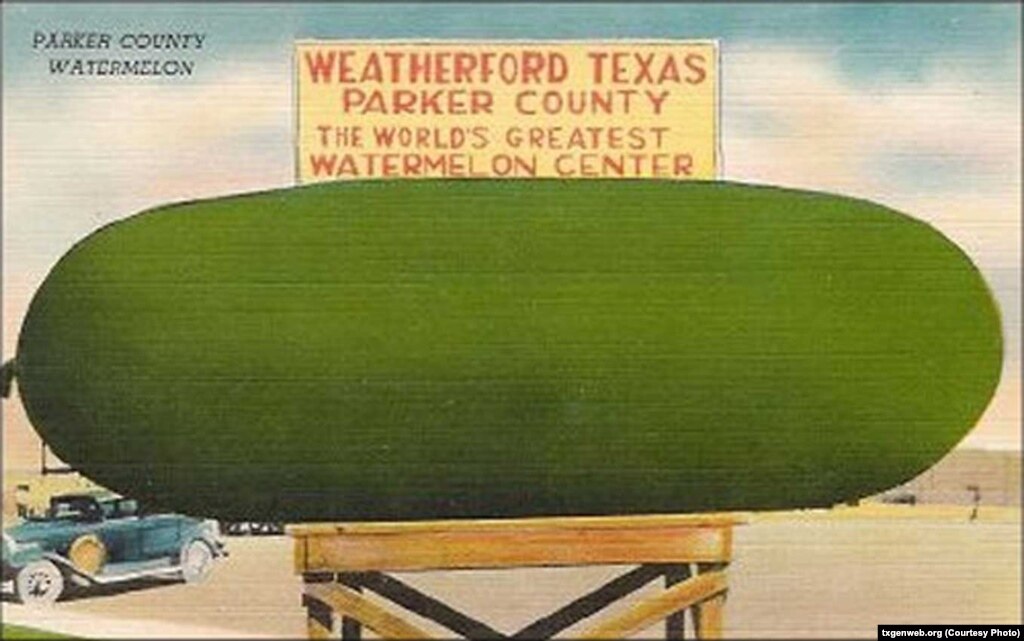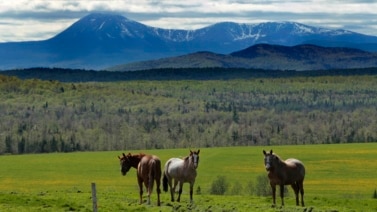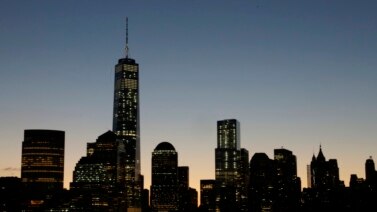
Have you ever heard that New York City claims to be the financial capital of the world? It claims to be the fashion capital of the world, too. But, London, England also says it owns those titles. And, most any French citizen will tell you that Paris is the real fashion capital of the world.
Big cities often make such boasts. The news media also plays a part in establishing unofficial “capitals of the world.”
But smaller and less famous cities also dispute “capital of the world” titles. Today, we tell you about a few of these quirky “capitals of the world” that you can find in the United States.
Cowboy capitals of the world
Cimmaron, New Mexico is a village about two hours from Santa Fe, the state capital. Cimmaron claims to be the “cowboy capital of the world.” The town got that nickname because some of the Old West’s most famous cowboys once lived there, including “Buffalo Bill” Cody.
But other cities take issue with Cimmaron’s claims. Oakdale, California, for example, is sure that it is the “cowboy capital of the world.” It even has a cowboy museum and holds a big rodeo every year.
Not surprisingly, the state of Texas claims a “cowboy capital of the world,” too. That would be the town of Bandera, in the rugged Texas Hill Country. With its rodeos and many dude ranches, visitors can easily feel the proud cowboy culture in Bandera, Texas.
Watermelon capitals of the world
Speaking of Texas, the state claims two of America’s seven – yes, seven – “watermelon capitals of the world.” The towns of Weatherford and Naples battle for the title.
Towns in five other states – Georgia, Illinois, Utah, Arkansas and Oklahoma – are also in the fight for the watermelon title. Many of the towns have festivals to celebrate the juicy fruit. Some of the towns also have large statues in honor of the watermelon.
Tourist appeal
Ken Smith is an editor at Roadside America. The website features off-the-beaten-path tourist attractions across the United States. He told VOA that many small cities fight for a “capital of the world” title to increase tourism.
“Most capitals of the world are usually smaller towns. They’re not big cities. Big cities do not need to call attention to themselves that way, whereas a small town does,” Mr. Smith said. “A town wants people to come, they want visitors. Tourists buy gas, eat, buy souvenirs. [They] help the local economy.”
The fight for "Catfish Capital of the World"
Sometimes, a “capital of the world” fight can get dirty. The long-standing feud between the Kansas towns of Burlington and Chetopa is a good example.
Both town desperately wanted the title of “Catfish Capital of the World.”
To settle the debate, the two towns held a competition to catch the biggest catfish. The winning town was to receive a trophy. Burlington won. But, the mayor of Chetopa did not accept the results.
Chetopa stole the trophy from Burlington. Burlington stole it back. The thieving went on for years.
Finally, the trophy ended up in Burlington. Chetopa settled on the title of “Catfish Capital of Kansas” and Burlington now rules as the state’s only “Catfish Capital of the World.”
No contest for these “capitals of the world”
Not every quirky “capital of the world” title is disputed. Sometimes, titles apparently are not as desirable as others. For example, Knoxville, Tennessee, as far as we know, is the only “Underwear Capital of the World.” The title is an old nickname for the city, which used to have a big textile industry.
Then there’s Scottsboro, Alabama, the “Lost Luggage Capital of the World.” The city is home to the Unclaimed Baggage Center, where airline luggage goes if it gets lost.
And Anthony, New Mexico, is the only “Leap Year Capital of the World.” Every four years, the small town holds a big birthday party for people born on Leap Day – February 29th. You can bet the city is already preparing for February 29th, 2016.
I’m Jonathan Evans with Ashley Thompson.
Are there quirky "capitals of the world" in your country? If so, tell us about a few of them in the comments section!
Ashley Thompson wrote this article for Learning English, with material from Dora Mekouar's All About America blog. Caty Weaver was the editor.
Words in this Story
boast - n. a statement in which you express too much pride in yourself or in something you have, have done, or are connected to in some way
quirky - adj. unusual especially in an interesting or appealing way
rugged - adj. having a rough, uneven surface
off-the-beaten-path - idiomatic phrase. in or to a place that is not close to the places where people usually go
feud - n. a long and angry fight or quarrel between two people or two groups
trophy - n. an object (such as a large cup or sculpture) that is given as a prize for winning a competition
catfish - n. a type of fish that has a large head and long thin parts that look like a cat's whiskers around its mouth
luggage - n. the bags and suitcases that a person carries when traveling

